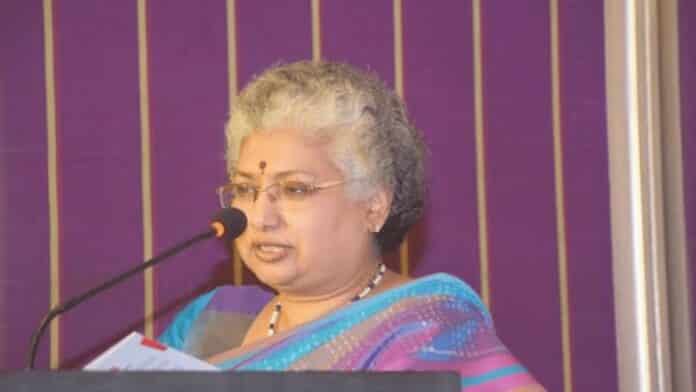Juvenile delinquents are not born criminals but succumb to parental or societal neglect and every citizen therefore must take a pledge to help assist children who are in need of care and protection or are in conflict with law, Justice B V Nagarathna of the Supreme Court said on Saturday.
Justice Nagarathna underscored that a child should not have to first commit a crime to get the help he needs and the best interest of juveniles cannot be secured without adequate community support structures.
The top court judge was speaking during the inaugural session of a two-day national consultation organised by the Supreme Court Committee on Juvenile Justice and Child Welfare on September 23 and 24 on best practices followed in states and to further strengthen the justice system for children in conflict with law.

The event was attended by Union Women and Child Development Minister Smriti Irani, Supreme Court judge and chairman of the committee Justice S Ravindra Bhat and other dignitaries, including Cynthia McCaffrey, Representative, UNICEF India.
“Juvenile delinquents are not born criminals but have succumbed as a result of being victims of neglect — parental or societal…. Every citizen owes a duty to the child. Children found on the streets, on railway platforms and other public places need to be attended to. When they are taken to shelter homes, their safety, dignity and security must be ensured. When a plethora of rights are created for children, the duties are on the society and government and non-governmental organisations,” Justice Nagarathna said in her speech.
“Therefore, every adult citizen must take a pledge to help and assist children who are in need of care and protection or are in conflict with law…. I appeal to all present here to demonstrate the highest degree of compassion, dedication and foresight. Our mission as a community must be the protection and promotion of children and their rights in difficult circumstances as also their empowerment,” she appealed.
In her address, Justice Nagarathna said there was a “mismatch” between the ideals of the juvenile justice law and its implementation, noting that in the absence of standards, many institutions such as registered shelter homes for children “become ground for grave acts of violence” as witnessed in cases like the Muzaffarpur shelter home case.
Asserting that it was “increasingly important” to ensure adherence of standards at an institutional level, the judge noted that a majority of the institutions were being run by non-governmental organisations.
“According to NCPCR audit of shelter homes in 2020, which is the latest available (data), there are 7,163 register children care institutions. These include shelter homes, adoption agencies, observation homes, orphanages, special homes et cetera. Of these, a whopping 6,299 or nearly 88 per cent are run by NGOs or trusts while the government runs only 864 centres, mainly observation homes where juveniles in conflict with law are detained,” the apex court judge shared.
Rehabilitation and welfare of children, the judge added, cannot be ensured by one institution without the support of other institutions in the system and thus a penal reception by the police, which is usually the first agency to come in contact, does not do well for creation of a mutual relationship of faith and warmth between the children and the state machinery.
Justice Nagarathna called for a holistic approach to the problems concerning juveniles.
Also Read
Observing that children born into unfortunate circumstances may be pushed into a life of crime and violence, she suggested extending the government’s integrated child development scheme to children up to the age of 18 years in order to address their basic needs and thus tackle juvenile delinquency.
Justice Nagarathna also cautioned against the statistics reflecting the “need for strong preventive measures” to reduce the nature of crimes by juveniles and said the curriculum needs to emphasize values of empathy.
“Being mindful of the danger trend of increasing aggression level among children, our curriculum needs to heavily emphasize on the values of kindness, respect and empathy. More community environment needs to become a more crucial facet of our curriculum,” the judge said.
The Supreme Court has been conducting national stakeholder consultations annually, bringing partners from the Ministry of Women and Child Development and other relevant government sectors, the national and state commissions for protection of children’s rights and others to bring momentum, attention, oversight and direction to priority areas related to the protection of children, a release issued by the top court institution has said.







